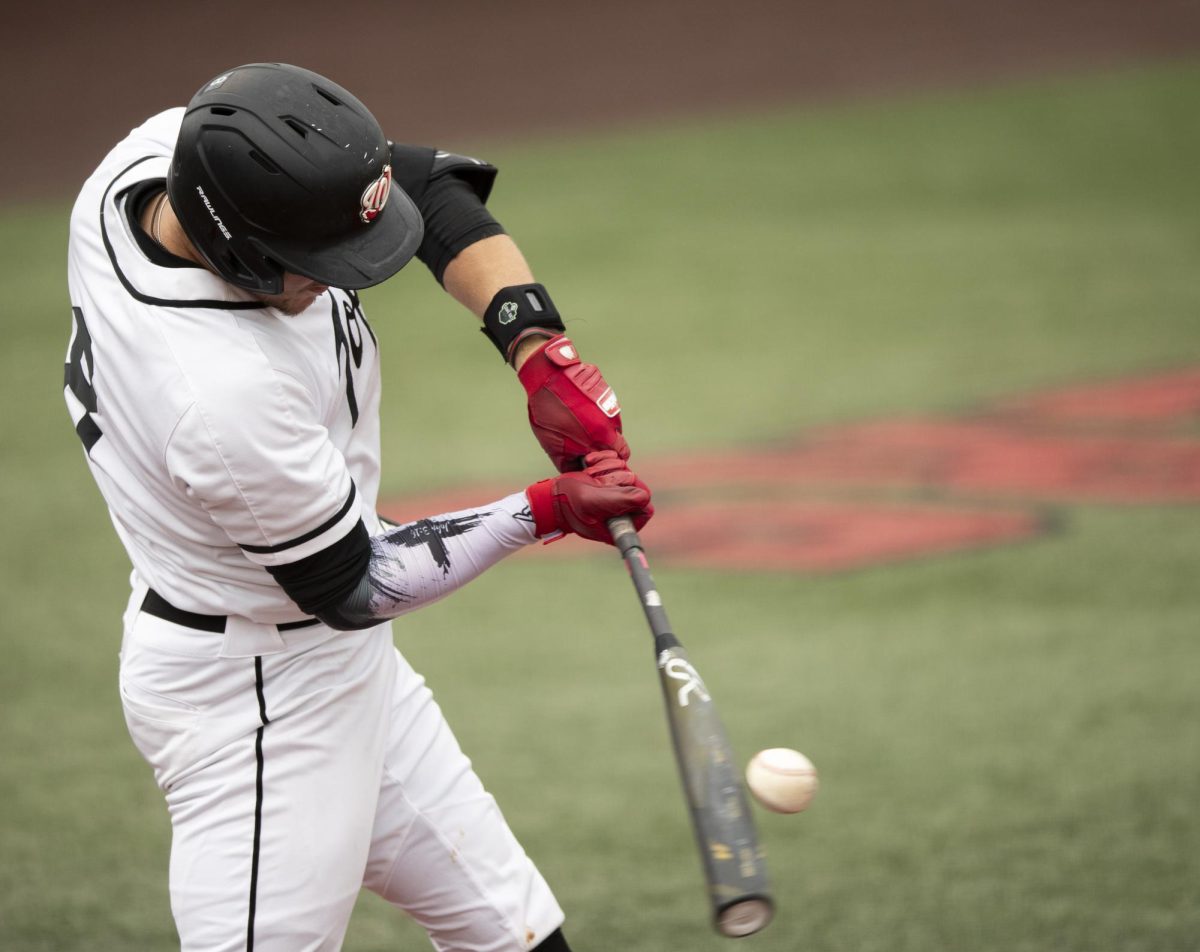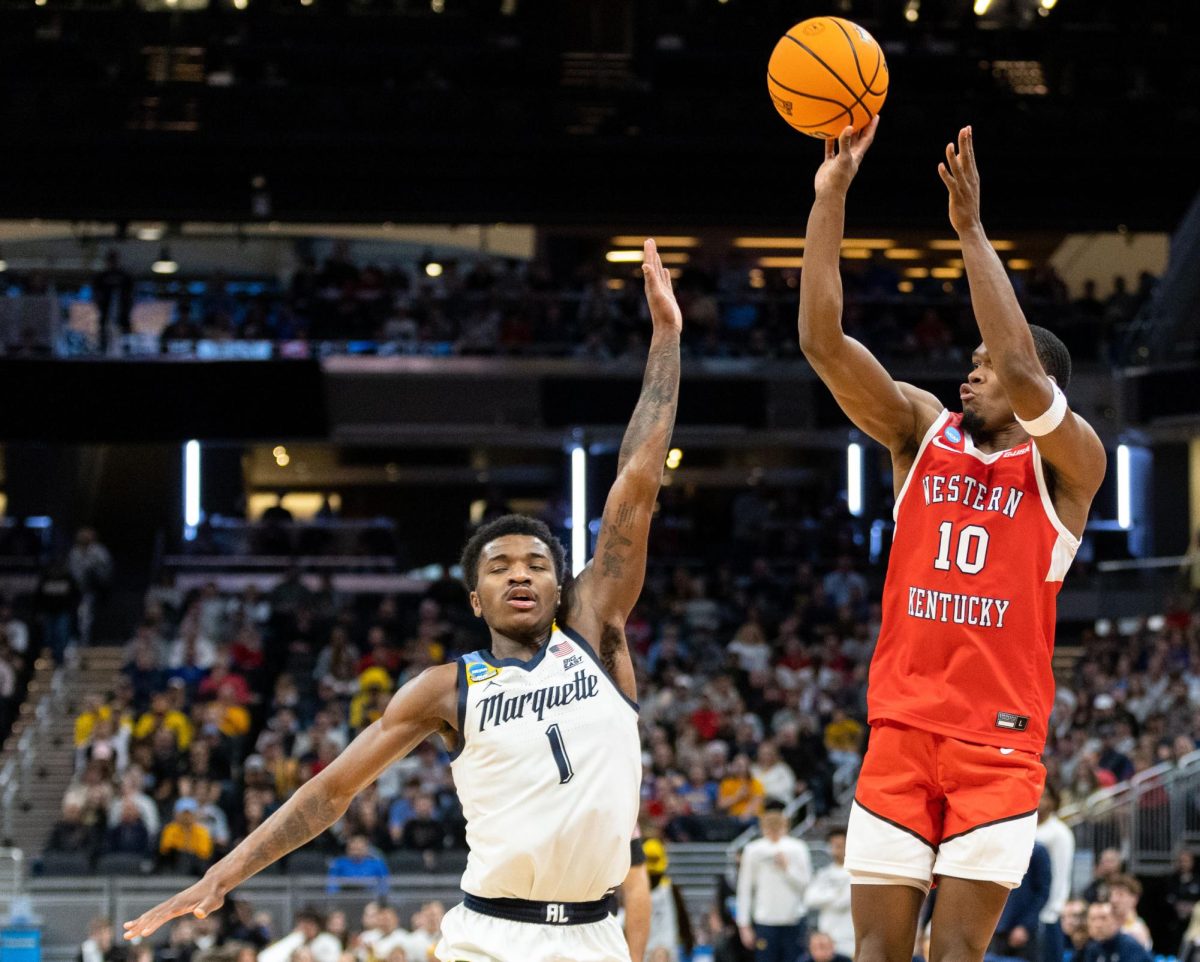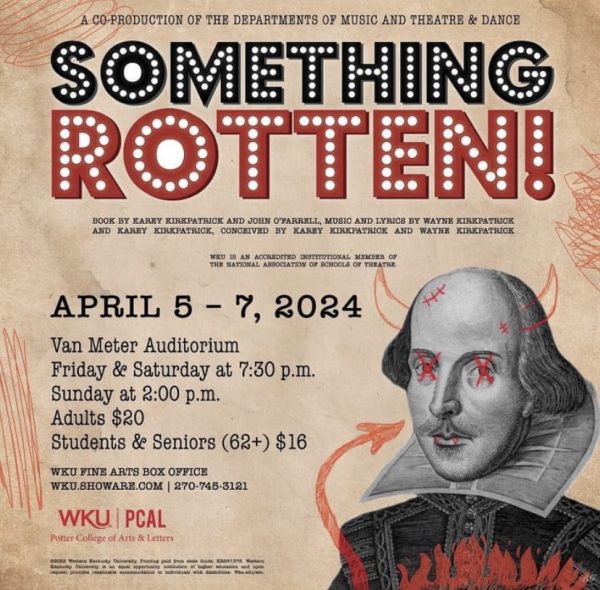ROTC students build leadership through military programs
September 11, 2014
Classwork begins long before 8 a.m. for Patrick Crews and the 180 other ROTC students on campus. With physical training three times a week, these cadets start their day at 6:30 a.m.
Longbeach, California senior Patrick Crews is currently a member of the National Guard and the ROTC program. After he graduates in December, Crews is hoping to be placed on active duty.
Students who are interested in ROTC don’t necessarily have to join the Army. A small number of the cadets are only pursuing a military leadership degree, but the majority of cadets are seeking to join the military as an officer upon graduation.
Lower level military leadership classes are open to anyone who’s interested, said Lieutenant Col. David Walker, a military leadership instructor.
“They’re very basic classes,” Walker said. “Time management, stress management classes that would help you regardless if you continued the military career. It would help you, in a sense, be a better student and hopefully help you be a better member of your community.”
While 99 percent of the military leadership students are pursuing an Army career, the other students are no less dedicated, Walker said. Cadets who don’t have an obligation to the Army do not have to attend the physical training sessions each week, but that doesn’t stop them.
“In most cases they are motivated by the other cadets,” Walker said. “This semester they’ve showed up for PT even though its not a requirement…I think it only helps them to develop that additional character that’s only going to make them more successful.”
Whether a cadet is planning on commissioning or not, the adjustment from high school to a college ROTC program can be challenging.
Brandon Smith, the recruiting operations officer for the ROTC program, said early mornings can be quite an adjustment for freshman.
“I think just coming right out of high school, that’s a big adjustment right off the bat, especially waking up that early — 6:30 in the morning. That’s a big change,” Smith said. “I think a lot of them do adjust pretty well once they get in and get the hang of things.”
While 6:30 a.m. is far from the norm for most college students, it becomes almost natural for the cadets.
“It becomes the routine. It becomes their lifestyle, so it’s nothing new,” Walker said.
St. Louis sophomore AJ Johnson enlisted after high school. Johnson said he later decided to join ROTC.
“I decided to come to college and this is what I knew,” Johnson said.
Johnson, along with several other cadets, is also a member of the National Guard. Although balancing school obligations with military ones can be challenging, it’s certainly been worth it for Johnson.
“I’d probably be working some dead-end job going nowhere really fast (without the military), to be honest.” Johnson said. “The Army and ROTC has really gave me limitless opportunities to do whatever I want to do and I owe a lot to them, that’s for sure.”
While some cadets join because it’s their best option, Crews always knew he would join the Army.
“Ever since I was a kid I wanted to join the military. I figured the easiest way to make a difference was to lead troops as an officer,” Crews said.
Although being an officer was always in the back of Crews mind, the transition still took some time.
“At first…you’re not used to waking up that early and starting your day but once you start getting incorporated with everybody and they start bringing you in as part of the family it just gets easier,” he said.
In addition to the weekly hours of classes and physical training, the cadets have a three-day training once a semester. Crews, along with the other National Guard cadets, also have drill some weekends.
Crews will graduate this December and hopes to work in the explosive ordinance disposal, infantry, or armor branch as an active duty officer.
Occasionally, Crews wonders what college would be like without the extra commitment, but never questions his decision to join.
“It’s what I chose and I kind of have an obligation. It’s not a bad thing because I know it sucks at times but it pays off in the end… I’m going to graduate with two majors, a minor, no debt and a career so you can’t really complain,” he said.











![Students cheer for Senator at Large Jaden Marshall after being announced as the Intercultural Student Engagement Center Senator for the 24th Senate on Wednesday, April 17 in the Senate Chamber in DSU. Ive done everything in my power, Ive said it 100 times, to be for the students, Marshall said. So, not only to win, but to hear that reaction for me by the other students is just something that shows people actually care about me [and] really support me.](https://wkuherald.com/wp-content/uploads/2024/04/jadenmarshall-1200x844.jpg)






![Megan Inman of Tennessee cries after embracing Drag performer and transgender advocate Jasmine St. James at the 9th Annual WKU Housing and Residence Life Drag Show at Knicely Conference Center on April 4, 2024. “[The community] was so warm and welcoming when I came out, if it wasn’t for the queens I wouldn’t be here,” Inman said.](https://wkuherald.com/wp-content/uploads/2024/04/smith_von_drag_3-600x419.jpg)






